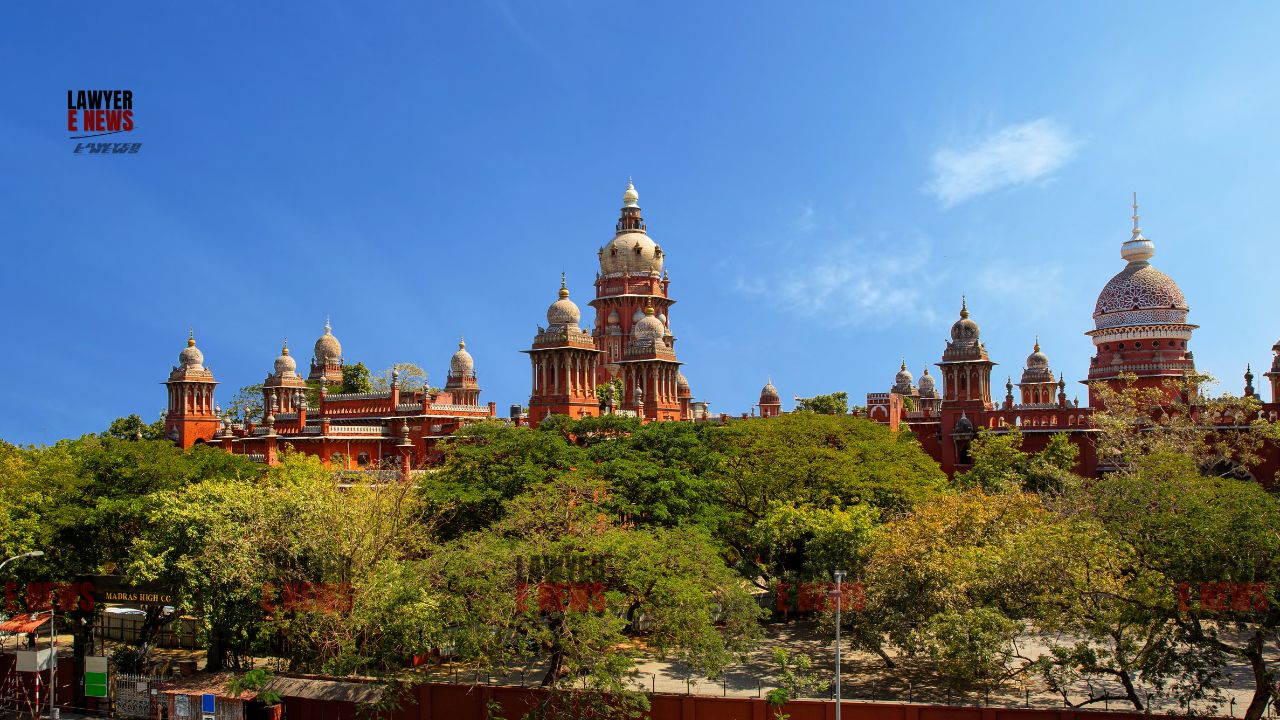-
by Admin
17 December 2025 4:09 PM



Section 75(4) of the GST Act mandates a personal hearing if an adverse decision is contemplated. Failure to adhere to this statutory obligation violates the principles of natural justice - Madras High Court quashed the GST assessment orders issued against M/s. Madhu Filament, a manufacturer of knitted fabrics, for the assessment years 2017-18 to 2021-22. The Court ruled that the Assistant Commissioner had violated the principles of natural justice under Section 75(4) of the Central Goods and Services Tax Act, 2017 (GST Act) by failing to provide a mandatory personal hearing to the petitioner before passing adverse orders. The matter was remanded for fresh consideration, with specific directions to comply with the statutory requirements.
M/s. Madhu Filament, the petitioner, is a manufacturer of knitted fabrics falling under Chapter Heading 6001, attracting 5% GST. The Assistant Commissioner, Karur 2 Assessment Circle, alleged that the petitioner sold certain finished goods, such as sacks, fishing nets, baby mosquito nets, and food bags, which fall under Tariff Head 3926 and attract 18% GST. These allegations were based on advertisements the petitioner had posted on the Indiamart.com website.
A surprise inspection was conducted at the petitioner’s premises on June 22, 2022, followed by the issuance of notices in Form GST DRC-01A on January 25, 2023, and Form GST DRC-01 on September 29, 2023. The petitioner responded to these notices on February 8, 2023, September 6, 2023, and most recently on October 10, 2023. However, the Assistant Commissioner passed the impugned assessment orders on November 3, 2023, confirming the GST demand without providing the petitioner an opportunity for a personal hearing after the latest reply.
The petitioner contended that the assessment orders violated Section 75(4) of the GST Act, which mandates granting a personal hearing if an adverse decision is contemplated. The petitioner pointed out that no finished goods were found during the inspection and that their reply dated October 10, 2023, addressing the allegations, was ignored.
The petitioner relied on earlier decisions of the Madras High Court, including W.P. Nos. 4105, 4110, and 4108 of 2023 (dated February 13, 2023), which held that a personal hearing must be provided after considering the assessee's reply if the authorities intend to pass an adverse decision.
The respondent, represented by the Additional Government Pleader, argued that ample opportunities were provided to the petitioner, including an earlier personal hearing on September 6, 2023. The respondent further maintained that the assessment orders were based on the materials available on the Indiamart.com webpage and that the principles of natural justice were adequately followed.
Justice B. Pugalendhi noted that while the petitioner had not specifically requested a personal hearing in their reply dated October 10, 2023, the statute mandates a hearing where an adverse decision is contemplated. Citing the earlier Madras High Court ruling in W.P. Nos. 4105, 4110, and 4108 of 2023, the Court reiterated:
“Only after a reply is sent by the assessee, the Authority can apply its mind and if they contemplate an adverse decision, they must provide an opportunity of hearing. Issuing a personal hearing notice even prior to the receipt of the explanation from the petitioner cannot be said to be in compliance with Section 75(4).”
The Court observed that the respondent failed to consider the petitioner’s reply dated October 10, 2023, and did not afford a personal hearing thereafter. This omission amounted to a violation of the principles of natural justice.
The Court also took note of the inspection conducted at the petitioner’s premises, which did not reveal any finished goods as alleged by the respondent. The impugned orders relied heavily on the Indiamart.com advertisement without adequately addressing the objections raised by the petitioner or providing any conclusive evidence to support the allegations.
The Madras High Court set aside the impugned assessment orders for all assessment years on the grounds of procedural irregularity and violation of natural justice. The Court remanded the matter to the respondent for fresh consideration, with specific directions to:
Provide the petitioner a personal hearing on February 26, 2024, without requiring any further notice.
Consider the petitioner’s reply dated October 10, 2023, and the inspection report before passing fresh orders.
Pass final orders within four weeks from the date of the personal hearing, strictly adhering to the principles of natural justice.
The Court emphasized that adherence to procedural safeguards under Section 75(4) of the GST Act is critical to ensuring fair assessment proceedings and protecting the rights of taxpayers.
This decision reinforces the mandatory nature of the procedural safeguards enshrined in Section 75(4) of the GST Act. It clarifies that providing a personal hearing is not a discretionary act but a statutory obligation where an adverse decision is contemplated. The ruling underscores the importance of considering the assessee’s objections fully and fairly before passing assessment orders, thereby ensuring compliance with the principles of natural justice.
The judgment also highlights the need for tax authorities to substantiate their claims with conclusive evidence and not rely solely on external sources, such as advertisements, without proper verification. By remanding the matter with clear directions, the Court has emphasized the necessity of fair and transparent proceedings under the GST regime.
Date of decision: 13/12/2024
